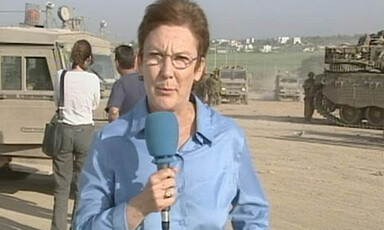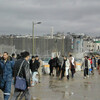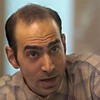
Spanish perspectives II: an interview with Teresa Aranguren (Part 2)
11 March 2005
“Our Western culture is radically ethnocentric. This makes it difficult to widen one’s view. To use a phrase from Juan Rulfo, ‘The world is wide and belongs to no one.’ We have think tanks full of experts who tell us that the economy requires this or that, all of these things that are just assumed. This is a very narrow vision of reality. The problem is that if this reality doesn’t count — that is, if it doesn’t matter what people of color think, what Africans think, what Asians think — then we can just go on living in ignorance of them, constructing our everyday world and believing that we are the only thing that matters in the world.” Part 2 of an interview with award-winning Spanish journalist Teresa Aranguren. Read more about Spanish perspectives II: an interview with Teresa Aranguren (Part 2)








